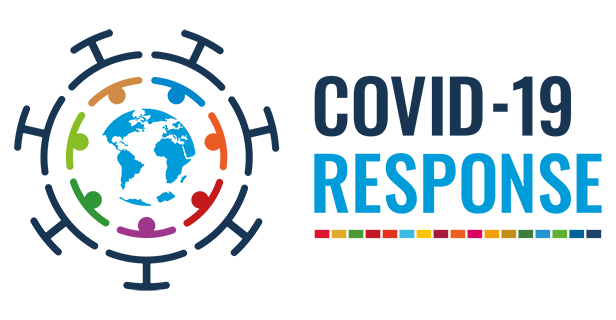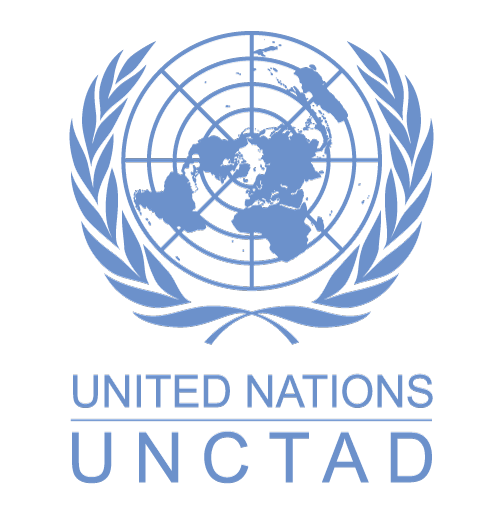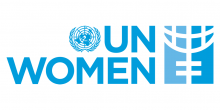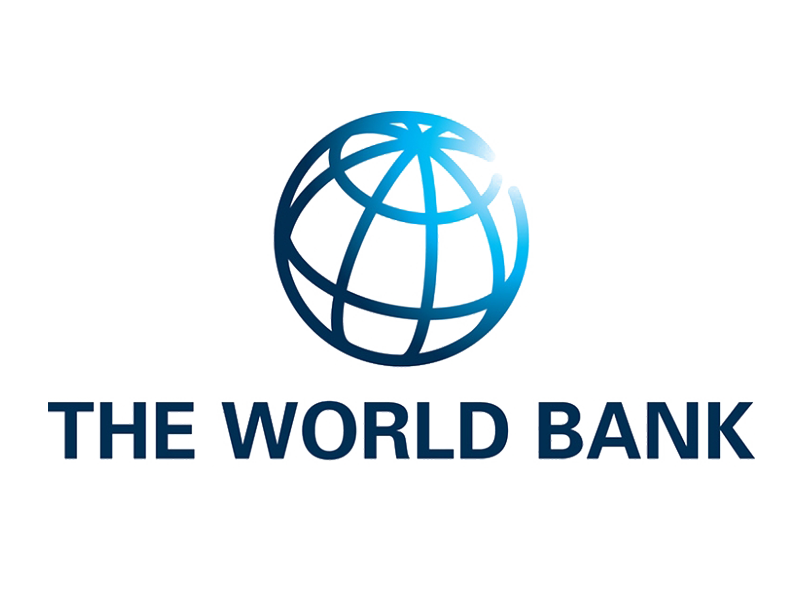Virtual Panel Series: UNCITRAL Texts and COVID-19 Response and Recovery - 8 to 9 and 13 to 16 July 2020
COVID-19 has caused not only an enormous global health crisis, but massive social and economic ones as well. The severe economic fallout from the interventions required to mitigate the effects of the pandemic is unprecedented for States, and the COVID-19 crisis will continue to disrupt international trade and economic activity for the foreseeable future.
Many of the legislative tools that UNCITRAL has developed can play an important role in assisting States in their economic recovery efforts; a strong legal framework will facilitate that recovery and help to revitalize commercial activity and global trade.
The Commission has requested the Secretariat to organize during its 53rd session a series of virtual panels that will consider these issues. Additional details and a link for registration appear below.
- Day 1: Identification and Authentication in the Digital Economy (8 July 2020) (PDF Programme)
- Day 2: Digital Economy and Trade Finance (9 July 2020) (PDF Programme)
- Day 3: Assisting Economic Recovery – Targeting MSMEs (13 July 2020) (PDF Programme)
- Day 4: Public-Private Partnerships and Public Procurement (14 July 2020) (PDF Programme)
- Day 5: COVID-19 Impact on International Dispute Resolution (15 July 2020) (PDF Programme)
- Day 6: Gender, Trade and COVID-19 (16 July 2020) (PDF Programme)
Recordings of the panels appear below, under the relevant day.
Summary of the Virtual Panel Series (PDF)
Day 1: Identification and Authentication in the Digital Economy
Wednesday, 8 July 2020
7-9 a.m. EDT / 1-3 p.m. CEST / 8-10 p.m. KST
Electronic identification and authentication are crucial to promote trust in online interaction. In that respect, UNCITRAL has worked to establish a legal framework enabling the widespread acceptance of electronic signatures. The COVID-19 crisis has highlighted the need to manage risks associated with face-to-face interaction, thus further accelerating the transition to online trade. This session will illustrate how identity management and trust services may assist in mitigating the impact of COVID-19 and how UNCITRAL can assist in legally enabling those mitigating measures, in light also of UNCITRAL’s current work on the use and cross-border recognition of electronic identification systems and a broader range of trust services.
Day 1: Virtual Panel Video
- Mr. Andrea Servida, Head of the Knowledge Management and Innovative Systems Unit, Directorate-General for Communications Networks, Content and Technology, European Union
- Mr. Serge Adjovi, Director General of the Agence des Services et Systèmes d’Information du Bénin
- Mr. Dongweon Choi, Director of Cyber Security Planning Division Ministry of Science and ICT, Republic of Korea
- Ms. Carla Vazquez Wallach, Co-founder of JW Legal Innovation, Mexico
- Mr. Thomas Smedinghoff, Of Counsel, Locke Lorde, United States of America
Day 2: Digital Economy and Trade Finance
In partnership with the International Chamber of Commerce
Thursday, 9 July 2020
7-9 a.m. EDT / 1-3 p.m. CEST / 8-10 p.m. KST
COVID-19 has brought into sharp focus the need to build more resilient supply chains and the disadvantages of paper-based practices with respect to trade finance and logistics. In this context, calls have been made to consider the role of the UNCITRAL Model Law on Electronic Transferable Records (MLETR) as a legal enabler of paperless trade. COVID-19 has also highlighted the need for modernising the law of electronic payments, particularly for financial inclusion and in developing economies. This session will address the policy, technological and economic drivers for paperless trade and supply chain management, and the associated needs for law reform, including through the adoption of the MLETR. It will also consider the elements of an enabling legal framework for modern technologies to support efficient payment systems.
Day 2: Virtual Panel Video
- Ms. Emmanuelle Ganne, Senior Analyst, Economic Research and Statistics Divisions, WTO
- Mr. Raoul Renard, Manager of Government Affairs, Permanent Observer Mission of the International Chamber of Commerce to the UN
- Mr. Shantanu Godbole, Senior Manager, Industries Research, IBM
- Ms. Yan Xiao, Project Lead, Digital Trade, World Economic Forum
Day 3: Assisting Economic Recovery – Targeting MSMEs
In partnership with the World Bank Group
Monday, 13 July 2020
7-9 a.m. EDT / 1-3 p.m. CEST / 8-10 p.m. KST
Micro, small and medium-sized enterprises (MSMEs) represent the majority of businesses in most countries and account for a large portion of overall employment. However, MSMEs worldwide experience similar obstacles during their life cycle, inclu- ding bearing a disproportionate burden of regulatory measures, having limited access to capital or banking services, and having limited access to efficient insolvency proceedings. Since 2013, UNCITRAL has been working to reduce the legal obstacles faced by MSMEs in a number of key areas.
Lockdowns and other measures to mitigate the COVID-19 pandemic have reduced demand for products and services, as well as disrupted supply chains, particularly in sectors where MSMEs operate. Despite temporary relief measures implemented by States, insolvencies of micro and small enterprises are expected to rise dramatically. Moreover, the crisis has severely ham- pered the capacity of MSMEs to generate the revenue necessary for their continued operation, making them even more dependent on credit from financial institutions and other financiers. This session will explore the importance of efficient, effective and simplified insolvency proceedings for resolving financial distress of micro and small enterprises in the current global context, as well as consider possible policy and legislative measures to enhance MSME access to credit, including through reforms based on UNCITRAL texts on secured transactions.
Day 3: Virtual Panel Video
Introduction
- Mr. Mahesh Uttamchandani, Practice Manager, Finance, Competitiveness & Innovation Global Practice World Bank Group
Panel I: Insolvency
- Mr. Jason Kilborn, Professor of Law, UIC John Marshall Law School, The University of Illinois at Chicago
- Ms. Kathlene Burke, Board Member, International Women's Insolvency & Restructuring Confederation (IWIRC), London
- Ms. Antonia Menezes, Senior Financial Sector Specialist, Finance, Competitiveness & Innovation Global Practice, World Bank Group
Panel II: Access to Credit and Secured Transactions
- Moderated by Ms. Louise Gullifer, Professor, University of Cambridge, United Kingdom
- Mr. John Wilson, Senior Specialist on Secured Transactions, World Bank
- Mr. Marek Dubovec, Executive Director, National Law Centre
- Ms. Mary Ellen Iskenderian, President and CEO, Women’s World Banking
Intervention
Day 4: Public-Private Partnerships (PPPs) and Public Procurement
Tuesday, 14 July 2020
7-9 a.m. EDT / 1-3 p.m. CEST / 8-10 p.m. KST
Panel I: In many countries, public services or public facilities are operated under PPP contracts. They typically impose obligations on the PPP partner to ensure the continuity and general, non-discriminatory availability of public services. COVID-19 related measures by Government may lead to cost increases (or lost revenue) due to health measures (fewer customers and users, mandatory distri- bution of masks, disinfecting equipment, etc.) ordered by the contracting authority. The UNCITRAL Legislative Guide on PPPs contemplates mechanisms for dealing with contract adjustment claims, or eventual termination, in a balanced manner that takes into account the public interest as well as the legitimate interests of the PPP partner. The session will discuss the relevant provisions of Legislative Guide against the backdrop of COVID-19, and how they enable governments to respond to such an emergency.
Panel II: Public procurement has been a key issue in the COVID-19 context – both the sudden and highly urgent need for medical equipment and services in quantities that are thousands of multiples of normal requirements, most of which are procured internati- onally, as well as the continuing need for normal government business to procure the goods and services necessary to deliver services to citizens. This session will focus mainly on emergency procurement, competition and collaboration in the COVID-19 crisis.
Day 4: Virtual Panel Video
Panel I: Public-Private Partnerships (PPPs)
- Ms. Laurence Folliot Lalliot, Professor of Public Law, Co-Director, Master 2 “Economic Law”, and Co-Director of the Centre of Research on Public Law – Paris Nanterre University
- Mr. Fuguo Cao, Professor of Law, Law School of Central University of Finance and Economics, Dean, Chinese Academy of PPP Governance, Central University of Finance and Economics
- Mr. Vladimir Kilinkarov, Counsel, Head of Russian PPP practice, Dentons (St. Petersburg)
Panel II: Public Procurement
- Mr. Christopher R Yukins, Co-Director of the Government Procurement Law Program, George Washington University
- Mr. Michel Nussbaumer, Director, Legal Transition Team, European Bank for Reconstruction and Development
- Mr. Reto Malacrida, Counsellor and Head of the Government Procurement and Competition Policy Group, WTO
- Ms. Erika Bozzay, Senior Policy Analyst, Public Procurement Unit, Public Governance and Territorial Development Directorate, OECD
Intervention
- Vietnam - Law on Investment in the form of Public Private Partnership (PPP)
- Italy - The impact of COVID-19 on public contracts from the perspective of the Italian legislation. Measures adopted and PPP contracts.
Day 5: COVID-19 Impact on International Dispute Resolution
In partnership with the Vienna International Arbitral Centre
Wednesday, 15 July 2020
7-9 a.m. EDT / 1-3 p.m. CEST / 8-10 p.m. KST
In a joint statement issued by arbitral institutions in May 2020, parties and arbitrators were encouraged to mitigate the effects of any impediments caused by the COVID-19 pandemic, while ensuring the fairness and efficiency of arbitral proceedings. It also called for collaboration among institutions in making use of digital technology in resolving disputes remotely. Several arbitral institutions have adopted responsive measures and have issued guidelines to assist parties and arbitral tribunals. This session will address the impact that COVID-19 measures have had on international dispute resolution. The first panel will address its short-term consequences and the second panel will examine the long-term consequences. The panellists will further consider whether UNCITRAL texts on international dispute resolution have been able to accommodate such adaptations, as well as the way forward.
Day 5: Virtual Panel Video
Panel I: Measures taken by arbitral institution to respond to the COVID-19 crisis
- Moderated by Mr. James Castello, Partner, King and Spalding LLP, United States of America
- Ms. Alice Fremuth-Wolf, Secretary-General, Vienna International Arbitral Centre (VIAC)
- Mr. Alexander G. Fessas, Secretary General, ICC International Court of Arbitration
- Mr. Ismail Selim, Director, Cairo Regional Centre for International Commercial Arbitration (CRCICA)
- Ms. Sue Hyun Lim, Secretary General, Korean Commercial Arbitration Board (KCAB) INTERNATIONAL
- Mr. Chengjie Wang, Secretary General, China International Economic and Trade Arbitration Commission (CIETAC)
Panel II: How will international dispute resolution evolve as a result of the COVID-19 crisis?
- Moderated by Mr. Andrés Jana, Partner Bofill Mir & Alvarez Jana, Chile; Chair of Working Group II
- Ms. Lise Alm, Head of Business Development, The Arbitration Institute of the Stockholm Chamber of Commerce (SCC)
- Ms. Maxi Scherer, Professor of International Arbitration, Queen Mary University of London; Special Counsel, WilmerHale
- Ms. Yulia Mullina, Executive Administrator, Russian Arbitration Center at the Russian Institute of Modern Arbitration
- Ms. Marianella Ventura Silva, Secretary-General, Arbitration Center of the Lima Chamber of Commerce, Peru
- Mr. Christian P. Alberti, Chief of ADR/General Counsel, Saudi Centre for Commercial Arbitration (SCCA)
Day 6: Gender, Trade and COVID-19
In partnership with UN Women
Thursday, 16 July 2020
7-9 a.m. EDT / 1-3 p.m. CEST / 8-10 p.m. KST
Emerging data is showing that women are bearing a disproportionate burden of the economic fallout from the COVID-19 crisis, mainly due to their greater economic activity in sectors - including informal sectors - that have been hardest hit by the crisis. Across every sphere, from health to the economy, security to social protection, the impacts of COVID-19 are exacerbated for women and girls simply by virtue of their sex. This session will explore how UNCITRAL tools can help promote pro-women and and gender-responsive policies in a post COVID-19 environment, particularly in support of the many micro, small, and medium-sized enterprises (MSMEs) that are owned by women. UNCITRAL texts on mediation provide MSMEs with more informal, flexible, and efficient dispute resolution tools to deal with commercial disputes, while fast and easy business registration supports MSMEs to set up in the formal economy, also potentially facilitating access to govern- ment recovery assistance. The pandemic has also changed the way in which businesses interact with customers to reduce face-to-face contact; UNCITRAL texts on electronic commerce support the use of digital technology – including the e-commerce platforms that are so important to promoting economic activity of women-led MSMEs.
Day 6: Virtual Panel Video
Introduction
I. Mediation as a flexible and informal dispute resolution tool
- Ms Eileen Carroll, Principal Mediator and Co-Founder of Centre for Effective Dispute Resolution
II. Simplified business registration
- Ms. Isabelle Deschamps, Founder of NGO “Health and Education NOW!”, Lawyer and Doctoral Candidate, McGill University, Canada
- Ms. Sylvia Solf, Global Lead, Trade, Investment & Competitiveness, World Bank Group
III. Trading platforms and e-commerce in remote working environments
- Ms Nina Angelovska, Minister of Finance, North Macedonia, UNCTAD eTrade for Women Advocate for the Balkans Region
Intervention








